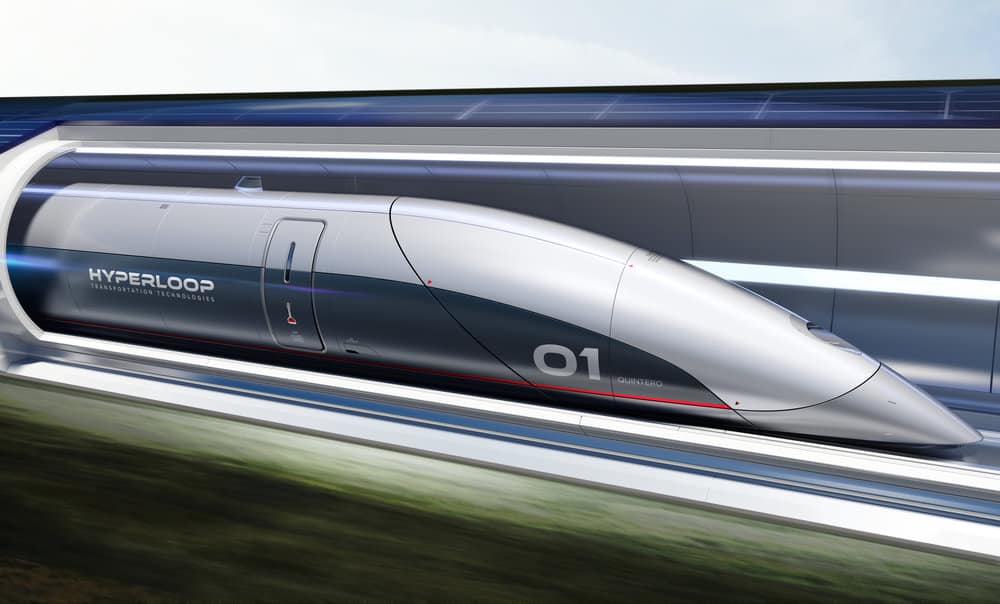
Ever since Elon Musk conceptualized the technology of hyperloop in 2012, there has been no dearth in the amount of activity it has generated. The mode of transport is as simple as it gets – people being transported through a capsule that hurtles at supersonic speeds through a vacuum tube, but then again, realizing the idea has been far from easy.
Although the paper that conceived the initial Hyperloop Alpha concept examined a route connecting the LA region to the Bay Area, there has been negligible activity in the U.S. with regard to hyperloop. The hyperloop market of today is crowded with companies and university teams pitting against each other in creating the first feasible hyperloop route on ground, but none of the projects under-construction call the U.S. home.
Dirk Ahlborn, the CEO of Hyperloop Transportation Technologies (HTT) had an interesting take on this. “Democracy isn’t friendly to these kinds of things. It’s a very large infrastructure project requiring a lot of people to work together,” he said. “If you want to do this in the U.S., you have tedious right-of-way issues. In China or Russia, however, all it takes is someone powerful to decide that they want it, and it happens.”
However, the city of Cupertino in California might be the lodestar the technology was looking for. Cupertino hosts the headquarters of Apple Inc, and quite understandably suffers from endless transportation problems courtesy the thousands who work for the hardware giant. Due to the inexorable traffic issues created by Apple, the city council proposed the creation of a “head tax”, which would charge any company that is based out of Cupertino and has 100 or more employees to pay a flat fee per worker.
But after much contemplation, the city council of Cupertino struck down the tax revision on Tuesday, which if passed, would have increased Apple’s tax bill from $17,000 to $9.4 million. The proposed tax was intended to revitalize the transportation network of the city, but now it looks like the city has set its sights on bringing in a hyperloop project to ease the traffic in the region.
According to a report by the Silicon Valley Business Journal, Darcy Paul, the Mayor of Cupertino has been in discussion with HTT about laying a hyperloop track in the city to relieve the traffic bottlenecks. “There could be very significant amounts of private sector funds willing just to invest in an early line so that, you know, that particular sector or company can use it as a bit of a showcase,” said Paul. Reportedly, Apple is on-board the idea as well, looking to subsidize the construction, though there has been no official confirmation from its side.
Building a hyperloop across Cupertino would essentially help Apple, as its construction would be a one-time expense for the company, rather than paying a “head-tax” which runs into a few million every year. Being the first publicly traded company to hit $1 trillion and also as a company that sits on over $200 billion in cash, this is a project that Apple could materialize without breaking a sweat.
However, the converse of it would also be a relevant question – the inclination of Apple towards building a hyperloop across Cupertino, when the discussed tax reform would only amount to a few million dollars every year. That apart, Apple owns 87 acres in San Jose, where it could relocate if the going gets tough. This would be a dampener to the city of Cupertino, as Apple employees roughly make up two-thirds of all the workforce in the region.
The city is also mulling at the necessity of building such an expensive transit solution, which could set it back by tens of millions of dollars, even if Apple ended up shelling out a bulk of the expense. Councilmember Barry Chang, who met with HTT this year has mentioned that the idea was to lay a track between San Jose Diridon Station to De Anza College, which is around 12 miles long. Meanwhile, HTT has been hard at work, inking partnerships for tracks in China and Abu Dhabi, and constructing its first track in Toulouse, France – a route which is widely expected to be utilized by Airbus, once it is ready.
Stay up-to-date with the latest commentary and insights on FreightTech and the impact to the markets by subscribing.










